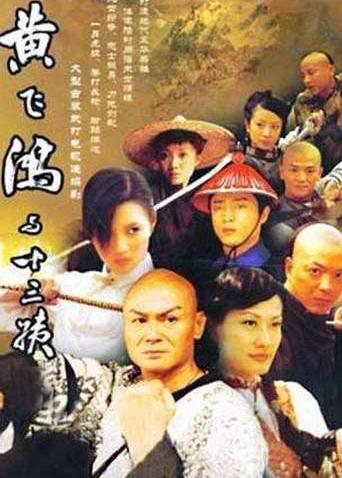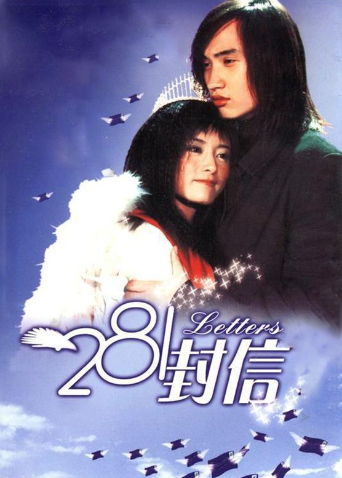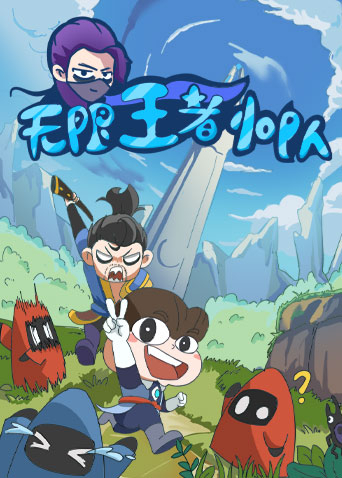二战末期,江城一个17岁的小男孩在乡间游荡,江城他先被苏维埃军队捉获,然后释放,之后又因为穿上一件御寒的德国军装而再次被苏联部队逮捕,被监禁在一个偏僻的兵营,在那里他跟一名年轻的苏联士兵建立起一段不可能的友谊关系。影片展示出导演一贯的主题:心理因素、随意的暴力和独裁政权。

二战末期,江城一个17岁的小男孩在乡间游荡,江城他先被苏维埃军队捉获,然后释放,之后又因为穿上一件御寒的德国军装而再次被苏联部队逮捕,被监禁在一个偏僻的兵营,在那里他跟一名年轻的苏联士兵建立起一段不可能的友谊关系。影片展示出导演一贯的主题:心理因素、随意的暴力和独裁政权。


回复 :Siddartha (Dhritiman Chatterjee) is forced to discontinue his medical studies due to unexpected and brutal death of his father. He has to now find a job in stead. In one job interview, he is asked to name the most significant world event in the last ten years. His reply is 'the plain human courage shown by the people of Vietnam', instead of the expected - man landing on moon. The interviewer asks is he is a communist. Needles to say that he does not get the job.He reaches a coffee shop where he is offered to work for the communist party. When he does not show any interest the party leader tells him about an opening for a medical representative. To escape from the heat and have a snooze, he goes in to a cinema. As a government propaganda newsreel is being shown before the feature, a bomb explodes in the cinema hall. In the stampede that follows, Siddartha, breaks his watch. He goes to a watchmaker but he cannot afford the repairs.Waiting to cross the road, he notices a sexy girl. He drifts back to his days as a medical student in a flashback. The professor is explaining anatomy of female breast. Many flashbacks and dreams occur to Siddartha through the film.On his way to hostel, he has an encounter with some hippies. Along with an ex-classmate, he goes out to see a porn film but to their disappointment, the film turns out to be not-so-pornographic.In such constant wandering in a Calcutta, disintegrated relationships with his sister and a Naxalite (militant communist) brother, his friendship with Keya is only thing that keeps him sane.Keya is a simple girl. They enjoy each other's company but they cannot make any commitment to each other due to the circumstances.After yet another attempt at a job interview, Siddartha leaves the big city to take a modest job of a salesman in a far off small town. He writes to Keya that he still cherishes their relationship. And that he has heard that bird call again but this time it is for real, and not his mind. After completing the letter, he comes out to the balcony of his modest room. The bird calls again. He also hears the sombre chants of a funeral procession. As he turns to the camera, the picture is frozen.This is the first film of the Calcutta Trilogy. The other two were and Seemabaddha (Company Limited, 1971) and Jana Aranya (The Middle Man, 1975). All the three films study the effect the big city of Calcutta has on the educated youth and the price it extracts from them.The seventies were a difficult period for India and West Bengal. The Corruption was rampant; the Naxalite movement had created havoc in Calcutta. In fact, they had turned parts of Calcutta into 'liberated zones'. By the time the Naxalite movement died down, in 1975, Mrs. Indira Gandhi (then, Prime Minister of India) suppressed the fundamental rights and declared "Emergency" for her own political survival. Her son, Sanjay Gandhi became a dictator of sorts without any official designation. The opposition leaders were thrown into prisons.About his social responsibilities as a filmmaker, in an interview with Cineaste magazine, Ray commented, "You can see my attitude in The Adversary where you have two brothers. The younger brother is a Naxalite. There is no doubt that the elder brother admires the younger brother for his bravery and convictions. The film is not ambiguous about that. As a filmmaker, however, I was more interested in the elder brother because he is the vacillating character. As a psychological entity, as a human being with doubts, he is a more interesting character to me. The younger brother has already identified himself with a cause. That makes him part of a total attitude and makes him unimportant. The Naxalite movement takes over. He, as a person, becomes insignificant."In a letter to Seton in 1970, Ray wrote that Pratidwandi was the most provocative film he had made till then. The film is said to have evoked extreme reactions. "People either loved the film or hated it", Dhritiman Chatterjee told Andrew Robinson, Ray's biographer.
回复 :故事发生在1982年。退休建筑工人葛全德师傅倡议组建了街道知青建筑队,又带领青年们承包了一座居民住宅楼的修建任务。市公安局局长的二儿子高振武和他的铁哥们儿小胡子等人也在这个建筑队工作。这些人流氓成性,整天惹事生非,经常不上班,发工资的时候倒一个都不少来。因没完成承包定额,队里决定每人少发五元,高振武一伙又大闹起来。葛师傅实在气急了,仗着自己有一身好武艺,他狠狠地把这些家伙教训了一顿。葛全德一家四口,老伴儿善良、贤慧。儿子玉龙诚实、耿直,在酱油厂当工人。"文革"中,原商业局局长许维昌下放到他们厂"改造",因干重活,病倒在地,玉龙不避嫌疑将他送到医院抢救。于是,玉龙与许局长的女儿许晶晶相识,他们成了挚友。后来许维昌父女去了干校,玉龙与晶晶分别多年。如今,许维昌官复原职,父女又回到这个城市,玉龙和晶晶确定了爱情关系。好景不长,玉龙的朋友看见晶晶最近经常和一个"小白脸"男人进出高级宾馆,立即报知玉龙。玉龙追到宾馆,看见晶晶和那男人竟然同住一室,气得差点儿昏过去。他痛苦地离开宾馆,来到海边徘徊。原来,许晶晶随父亲回城后,当上了市歌舞团的报幕员。由于爱慕虚荣,想当电影演员,上了那个"小白脸"的圈套。那人叫戴征,是本市戴市长的二儿子,他玩弄女人,投机倒把,无所不为。他冒充电影导演,诱奸了晶晶。晶晶有苦难言,无奈只得中断了与玉龙的爱情,委身于戴征。婚后没多久,戴征又勾引上另一个女人,同时还纠集团伙大搞走私等违法勾当。晶晶和他离了婚,又回到父亲身边。许局长理解女儿的痛苦,知道他仍然爱着玉龙,真心希望他们重新和好。玉龙的妹妹葛秀娟待业一年多,刚刚分配到商业局托儿所工作。过去,高振武曾拦路调戏过她。这一天,高和小胡子到托儿所偷东西,在院子里又和她相遇。高振武对秀娟污言秽语,欲施无礼。托儿所所长和老师们闻声出来,所长一面阻拦,一面训斥,小胡子用匕首将老所长刺成重伤,一秋人趁乱而逃。戴市长的大儿子戴寻是个诚实、正派的中年知识分子。妻子是公安局长的女儿是个仗义执言,敢于抵制不正之风的记者,后因车祸死去。戴寻的小女儿得到托儿所葛秀娟阿姨无微不至的关怀,戴寻也逐渐地和秀娟产生了爱慕之情。戴市长和高局长都是秉公无私的好干部,当他们得知自己的儿子背着他们干了许多坏事时,果断地下令逮捕了戴征和高振武这两个败类,平了民愤。
回复 :An unwed mother, forced to give up her child to avoid scandal, follows her son's life from afar even as she prospers in business.